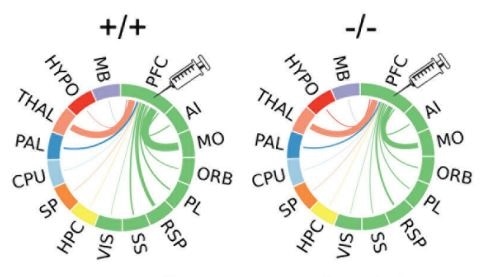Adult male mice lacking the gene Shank3 display structural and functional deficits in the prefrontal cortex, finds a study published in JNeurosci. The research advances our understanding of one of the most common genetic risk factors for autism spectrum disorders.

Shank3 mutations are commonly observed in humans with autism and related developmental disorders. Previous animal research documents associations between Shank3 and basal ganglia dysfunction, which may contribute to repetitive behaviors characteristic of autism. In humans, Shank3 mutations have also been linked to intellectual and language difficulties.
Using magnetic resonance imaging in mice, Alessandro Gozzi and colleagues demonstrate reduced prefrontal cortex connectivity and gray matter volume in Shank3-deficient animals. The researchers report these brain differences are tightly linked to impaired social interaction with female mice. These findings establish a role of Shank3 in maintaining prefrontal cortex connectivity, which may increase autism risk when disrupted.